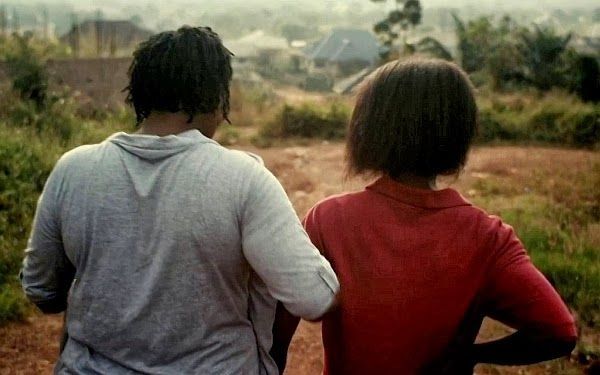Eye For Film >> Movies >> B For Boy (2013) Film Review
B For Boy
Reviewed by: Anton Bitel

Amake (Uche Nwadili) has it all. She is her own boss in a job that she enjoys. Her globe-trotting husband Nonso (Nonso Odogwu) loves and, just as importantly, respects her. They live very comfortably in their large, well-appointed home in the city, with a maid. Their seven-year-old daughter Ijeoma is smart and already learning English alongside her native Ibo - and with Amake six months pregnant, there is another child on the way. The Okolis are the very model of a modern bourgeois family, urban and outward-looking - but it is not so easy to leave Nigeria's old traditions and rural values entirely behind.
These are embodied by Nonso's Mama (Ngozi Nwaneto), who is determined that her late husband's name should be passed on, through Nonso or more improbably through his irresponsible brother Chidi, to the next generation. This means that Amake is under great pressure to produce a male heir, and with the as yet unborn child of this 39-year-old woman likely to be her last, Mama is already making unsubtle arrangements to fix Nonso up with a younger second wife as an insurance policy. Shortly after learning that her baby is indeed a boy, Amake loses him due to a medical complication - and when she tries to break the news of the stillbirth and her resulting infertility to Nonso, he interrupts her with his own news about Chidi's death in an accident.

Accordingly, Amake pretends that she is still pregnant, waiting for the right moment to tell Nonso the truth - and in the meantime she secretly tries to arrange adoption of the male baby that Joy (Frances Okeke), a desperate young woman, is carrying, in exchange for money and the promise of a good home. Yet as the lies accumulate, as Mama circles, and as both Amake and Joy gets closer to their due dates, the truth - or something - must out, ensuring that Chika Anadu's feature debut keeps tightening the screws all the way to the bitter end.
"For mothers" states a dedication in the closing credits of B For Boy, even if all the mothers depicted within the film - Amake, Mama, Joy - are guilty of exploiting other women and are themselves responsible for reinforcing the very patriarchal system that limits their choices and freedoms. Anadu's point is not somehow lazily to blame women for their own oppression, but rather to show more subtly how deep the roots of clan patriarchy run through Nigerian life, how ingrained the traditional attitudes have become, and how difficult religious, social and familial pressures can be to escape, cornering women into situations and decisions that are far from ideal. Everybody here behaves in a manner that is culturally prescribed, ensuring that nobody is simply dismissed or demonised, even if the results remain as inevitable as they are tragic.
All of which makes B For Boy an important film, addressing entrenched social principles which, though intended to bind families together, can instead tear them apart. For Anadu's drama shows a clash of the middle and working classes, of city and village, of localism and internationalism, not to mention of men and women, with Amake's belly, whether bulging or padded, becoming a heavily contested arena for Nigeria's body politic. Not that the film is without its flaws. There is an undeniable element of soap opera to Amake's domestic troubles, and the film's use of handheld camerawork, so effective for generating realism in the scenes where characters are interacting, arguing and moving, looks simply terrible in scenes where there is nobody on screen - like the long takes of the empty corridor in Amake and Nonso's home, with the camera visibly wobbling throughout. Still, to begrudge this film its faults would be to ignore the way it cuts to the very heart of the contradictions and hypocrisies of a nation that still regards women as vessels for male bloodlines.
Reviewed on: 15 Oct 2013















